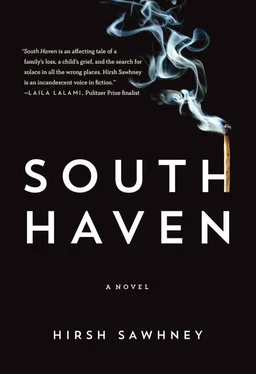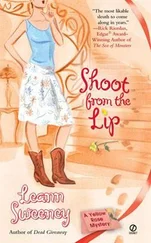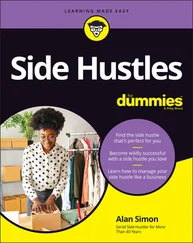Mohan Lal sliced open the envelope and read the letter on the family room armchair.
“Come on, already,” said Ms. Farber, who was leaning against the kitchen doorway. “Give us the good news.”
Mohan Lal removed his glasses and pinched the bridge of his nose.
Siddharth grabbed the letter from him. It was signed by Reginald Feldman, senior editor, and not Mr. Wasserman, the assistant editor who’d previously written.
“Read it out loud,” said Mohan Lal.
“Huh?”
“Are you deaf? I said read it aloud.”
Siddharth seated himself on the love seat. “ Dear Dr. Arora, this letter is regarding your manuscript entitled Marketing for the Twenty-First Century: A New Paradigm , which we received on June 12, 1992. ”
“Louder,” said Mohan Lal.
“ While I applaud your efforts to push the boundaries of your field and raise interesting ethical questions, our editorial team— ”
“Stop,” said Mohan Lal. “Skip to the next paragraph.”
Siddharth cleared his throat. “ Though I personally appreciate your approach, your manuscript, in its current form, might be considered too eso— ” He was unfamiliar with this last word and hesitated.
“Esoteric,” said Mohan Lal. “You should know that.”
“. . might be considered too esoteric. Some readers might be repelled by its partisan nature, ” continued Siddharth. “ However, if you can rework your project along the lines we’ve previously discussed and resubmit in December— ”
“Enough!” snapped Mohan Lal, pounding his fist onto the chair’s wooden arm. He shot up and stomped to the dining room. Still holding the letter, Siddharth followed behind, looking on as his father poured himself a tall glass of whiskey, the fancy stuff Barry Uncle had brought over.
“Mo, honey, hang on a sec,” said Ms. Farber.
“Leave me,” said Mohan Lal.
“We need to talk this through.” She put a hand on his shoulder. “There’s definitely a silver lining here. Actually, that’s an understatement. If you ask me, this is encouraging news.”
“She’s right, Dad,” said Siddharth.
Ms. Farber started rubbing Mohan Lal’s back, and Siddharth turned his head toward the window. Outside, a hummingbird was hovering over a withering pink blossom.
Mohan Lal sipped some whiskey. “Listen. Ours is a world of sheep, and this man is the biggest sheep of them all. He’s a bullshitter — a coward.” He grabbed the letter from Siddharth and crumpled it into a little ball. He chucked it at the window, and the hummingbird fled. “I’m in a useless profession — a useless profession in a useless country.”
“Oh, Mo.” Ms. Farber brought his fingers to her mouth and kissed them. “They want you to make a few small changes. Just some minor alterations.”
“You see, publishing is a business, and businesses exist to make money. Books that sell are written by stooges — people who are willing to uphold prevailing ideas, not challenge them.” Mohan Lal scowled. “The dean. He has a long arm now. His fingerprints are all over this affair.”
“The dean, Dad?” said Siddharth. “Are you for real?”
Ms. Farber retrieved the letter and placed it on the counter, smoothing it down with the palm of her hand. “I know you’re upset, Mohan. But is that really rational? Do you honestly think the dean had something to do with this?”
Mohan Lal slammed his glass down. “What do you know about it, Rachel? What do you know about anything?”
“Chill, Dad,” said Siddharth. “We’re just trying to help.”
* * *
Siddharth sat in front of the television, feverishly flipping through the channels, regretting that he hadn’t thrown the letter in the garbage as soon as it had arrived. He wished that his father hadn’t lost it in front of Ms. Farber. She entered the family room and flashed a nervous smile, then went out to the porch and lit a cigarette. He wondered if Mohan Lal had told her she could smoke out there. He wondered if Walton was right about the book. What if it was too esoteric? — whatever that meant. Arjun had once said that their father was addicted to his freakish opinions because he felt so small inside. Poor Dad , Siddharth mused, the man is a genius, but people never appreciate him.
He plodded down the hallway to his parents’ bedroom, where Mohan Lal had holed himself up. The door was locked. Siddharth knocked, but nobody answered. He picked the lock with a tiny screwdriver meant for repairing eyeglasses, something he hadn’t done in years. Hearing the shower running, he entered the bathroom. Mohan Lal’s dirty undergarments were draped on the toilet seat, and Siddharth brushed them onto the pink vinyl floor.
“Rachel?” said Mohan Lal.
“No, it’s me,” said Siddharth.
The bathroom was dark and steamy, and he found it peaceful. Mohan Lal shut off the water and started soaping himself. He then turned the tap on to rinse off the suds, muttering a Buddhist prayer to himself. After shutting off the shower a second and final time, Mohan Lal reached for his rough yellow towel. “Son,” he said, “your old man can be a fool sometimes.” He wiped himself down slowly and meticulously, then exited the bathroom and threw his towel on the patchwork bedspread.
Siddharth hadn’t seen his father naked in a long while. The tufts of hair on his ass were totally white now, and his wrinkly penis seemed smaller than before. It was darker too, darker than any other part of his body. He shifted his eyes to the black lacquer nightstand that used to belong to Mohan Lal. It now contained Ms. Farber’s things — her reading glasses, a psychology journal, and a couple of orange bottles of pills. On top of his father’s dresser sat a stone statue of a blue Indian god playing a metal flute. He had never seen this statue before and wondered where it had come from.
Mohan Lal put on a fresh pair of underwear. He sat himself on the edge of his bed and began clipping his fingernails. Siddharth scrutinized the scar on his father’s chest, a hairless depression between his nipples that resembled a map of Florida. A few weeks ago, Mohan Lal had been trying to repair Ms. Farber’s busted dryer wearing nothing but an undershirt. She asked him how he had gotten that scar, and he told a story that Siddharth had never heard.
When Mohan Lal was just a baby, he had suffered from various respiratory problems. As a last resort, a Buddhist monk took Mohan Lal up into the mountains and performed surgery on his lungs. But the wound from the operation got infected, and it smelled so badly that Mohan Lal’s mother wouldn’t hold him. She didn’t hold him for an entire year.
When Mohan Lal finished his story, Ms. Farber said that nobody could be crueler than a person’s own parents. Mohan Lal insisted that it was no big deal, that it was wrong of Western psychologists to always blame the parents. The thing that really mattered, he said, was that he was still alive thanks to that monk.
Mohan Lal finished with his fingernails and put the nail cutter in a drawer. He threw on sweatpants, then a new pair of beige dress socks. “Son,” he said, “will you do your father a favor?”
“Of course.”
“Put some ointment on my back? Today it is very sore.”
Siddharth grabbed a blue plastic bottle from atop the cistern and squirted the gelatinous substance onto his fingers. It smelled like peppermint, only much stronger. He sat beside Mohan Lal and began applying the cool gunk to the skin of his back, which was soft and warm. Mohan Lal emitted little moans of relief. “Good boy,” he said. “I don’t know what I have done to deserve such a son.”
Читать дальше












